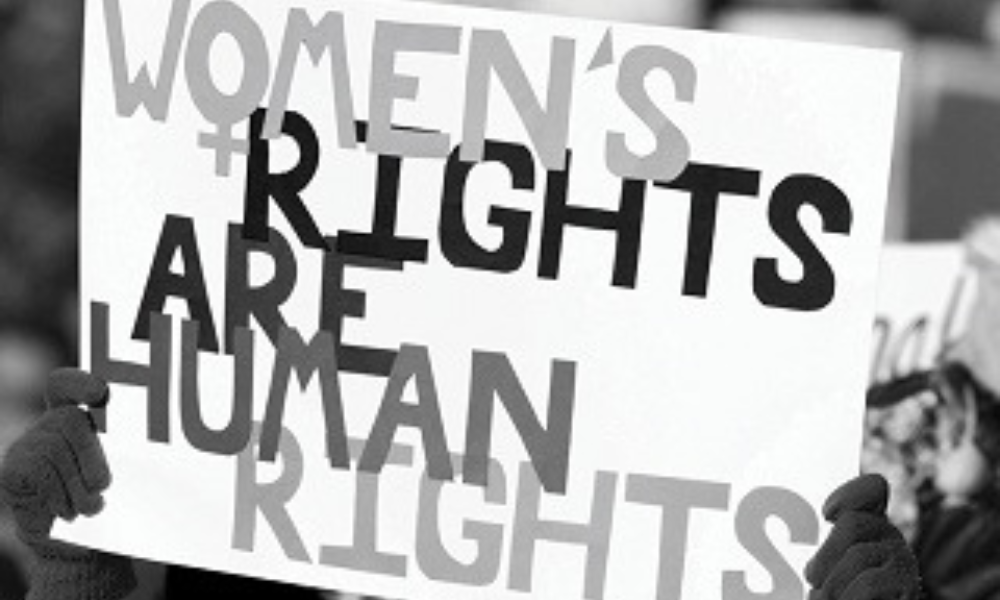Diritti umani
Donne private di diritti— Women without rights

Donne private di diritti
In Cina è rivoluzione dei fuochi artificiali con i festeggiamenti per l’anno nuovo, violando il divieto in atto dal 2018. In Iran la situazione resta critica, con imprese costrette a chiudere per carenza di combustibili e gelida siccità invernale cui le autorità danno la colpa alle donne che rifiutano il velo. E se la triste situazione ucraina permane con botti veri, altrettanto triste è la condizione femminile in Afghanistan, cui si unisce quella meno clamorosa dell’Iraq e moltissimi altre società patriarcali, dove le donne devono ubbidire a padri, fratelli e mariti, senza libertà di parola.
Il sistema parentale maschile è storicamente l’unità di base di molte società quale meccanismo di autodifesa tra uomini uniti contro i nemici esterni. Ricordiamoci però esempi come l’Etruria, dove l’emancipazione femminile resta proverbiale, anche se quella civiltà, poi declinante con l’immagine del ‘grasso etrusco’, finirà annichilita dall’attacco romano. Nella Cina dell’oggi, come in gran parte di Asia, Africa e Medio Oriente vige l’unione nuziale ‘patrilocale’ (la donna si sposta presso il marito), la discendenza, la proprietà e il comando sono ‘patrilineari’, mentre la castità deve essere assicurata solo al femminile.

Quello che interessa notare è la correlazione diretta tra grado di oppressione delle donne e grado di povertà ed instabilità delle nazioni, come messo in evidenza da una ricerca USA di qualche tempo fa su 176 Paesi a cura di Hudson, Bowen e Nielsen. L’indice di fragilità degli Stati è confrontato con la ‘sindrome patrilineare/fraternale’, composito collegato alle donne che include, tra gli altri dati, iniquità di trattamento, precocità del matrimonio, poligamia, pagamento di una dote alla famiglia (diffusissimo in India), preferenza per il figlio maschio (qui il primato sta alla Cina), violenze ed attitudine diffusa rispetto ad esse, inclusi gli stupri. Ovvi i risultati migliori per le democrazie dei Paesi sviluppati, con podio ad Australia, Svezia e Svizzera. I risultati peggiori per Iraq (dove gli antichi codici d’onore tribali prevalgono anche sul Corano), Nigeria, Yemen, Afghanistan pre-talebano (!) e Sud Sudan.
Maggiore il grado di patriarcato, maggiori sono povertà, insicurezza alimentare e indice di sviluppo umano (Human Development Index | Human Development Reports (undp.org)), quindi, ma la buona notizia è che la situazione va gradualmente migliorando. Ricordiamoci che in Occidente ci sono voluti secoli per affrancarsene, e l’avanguardia fu il mondo cattolico, allorché nel VII secolo la Chiesa di Roma proibiva poligamia, privazione dell’eredità per le vedove, e matrimoni forzati nonché tra cugini. Certo, pensando alla Svezia, viene in mente anche quella Greta Thunberg che in questi giorni protesta contro l’apertura di una miniera di lignite in Germania, e di cui ho visto una recente intervista sulla BBC. Ignoranza sulle questioni tecniche dell’energia, di climatica, e sull’opportunità di adattarsi al cambiamento (vedi eventi di questi giorni in California), unita a semplicistica demagogia per i numerosi seguaci. L’anno scorso la ventenne osava dire: “Esigo che tutti guidino auto elettriche adesso!” Le più costose, (un po’) meno sicure automobili a batterie ricaricabili agli ioni di litio, prodotte d’importazione pressochè totale (come già scritto), e sulla filiera dell’estrazione mineraria operata da suoi coetanei spesso di pelle nera (ma anche da bambini) in condizioni contrarie alla dignità umana. Insomma, nella complementarietà di Yin e Yang (阴阳), viva la parità autentica tra donne e uomini! Solo, riflettere ogni tanto sulla fine dell’Etruria. E teniamoci in forma.
Women without rights
In China there is a fireworks revolution with the celebrations for the new year, violating the ban in place since 2018. In Iran the situation remains critical, with businesses forced to close due to fuel shortages and a freezing winter drought which the authorities blame on women who refuse to veil. And if the sad situation in Ukraine remains with deadly fires, equally sad is the condition of women in Afghanistan, which is joined by the less sensational one in Iraq and many other patriarchal societies, where women must obey their fathers, brothers and husbands, without freedom of speech.
The male parental system is historically the basic unit of many societies as a self-defense mechanism between united men against external enemies. However, let us remember examples such as Etruria, where female emancipation remains proverbial, even if that civilization, when declining with the image of the ‘fat Etruscan’, will end up annihilated by the Roman attack. In today’s China, as in much of Asia, Africa and the Middle East, there is a ‘patrilocal’ marriage (the woman moves with her husband), bloodline, property and leadership are ‘patrilineal’, while chastity must be ensured only for women.

What is interesting to note is the direct correlation between the degree of oppression of women and the degree of poverty and instability of nations, as highlighted by a US research conducted some time ago on 176 countries by Hudson, Bowen and Nielsen (The First Political Order: How Sex Shapes Governance and National Security Worldwide | Request PDF (researchgate.net)). The fragility index of the states is compared with the ‘patrilineal/fraternal syndrome’, a composite linked to women which includes, among other data, unfair treatment, early marriage, polygamy, bride price (very common in India ), son preference (here primacy lies with China), violences and widespread attitude towards them, including rapes. The best results are obvious for the democracies of developed countries, with Australia, Sweden and Switzerland on the podium. The worst results for Iraq (where the ancient tribal codes of honor also prevail over the Koran), Nigeria, Yemen, pre-Taliban Afghanistan (!) and South Sudan.
The higher the degree of patriarchy, the higher the poverty, food insecurity and human development index (Human Development Index | Human Development Reports (undp.org)), therefore, but the good news is that the situation is gradually improving. Let us remember that it took centuries for the West to get rid of it, and the Catholic world was the vanguard, when in the 7th century the Church of Rome forbade polygamy, deprivation of inheritance for widows, and forced marriages as well as between cousins. Of course, thinking of Sweden, Greta Thunberg also comes to mind, who is protesting these days against the opening of a lignite mine in Germany, and of whom I recently watched an interview on the BBC. Ignorance on technical issues of energy, climate, and the opportunity to adapt to change (see events of these days in California), combined with simplistic demagoguery for the numerous followers. Last year, the 20-year-old dared to say: “I demand that everyone drive electric cars now!” The more expensive, (slightly) less safe cars with lithium-ion rechargeable batteries, made by almost total imports (as already written), and on the mining supply-chain operated by her often black-skinned peers (but also by children) in conditions opposite to human dignity. In short, in the complementarity of Yin and Yang (阴阳), viva the authentic equality between women and men! Just, from time to time let us keep in mind the end of Etruria. And keep fit.
 Marco Andreozzi, è Dottore in Ingegneria Meccanica, Economia/Amministrazione (Politecnico di Torino), tecnologo industriale e specialista del settore energetico, proviene da esperienze professionali in cinque multinazionali in Italia e paesi extra-europei, e come direttore generale; nomade digitale dal 2004, e sinologo, parla correttamente il mandarino.
Marco Andreozzi, è Dottore in Ingegneria Meccanica, Economia/Amministrazione (Politecnico di Torino), tecnologo industriale e specialista del settore energetico, proviene da esperienze professionali in cinque multinazionali in Italia e paesi extra-europei, e come direttore generale; nomade digitale dal 2004, e sinologo, parla correttamente il mandarino.
Marco Andreozzi, is Doctor of mechanical engineering (polytechnic of Turin – Italy), industrial technologist and energy sector specialist, comes from professional experiences in five global corporates in Italy and extra-European countries, and as business leader; digital nomad since 2004, and China-hand, he is fluent in Mandarin.













